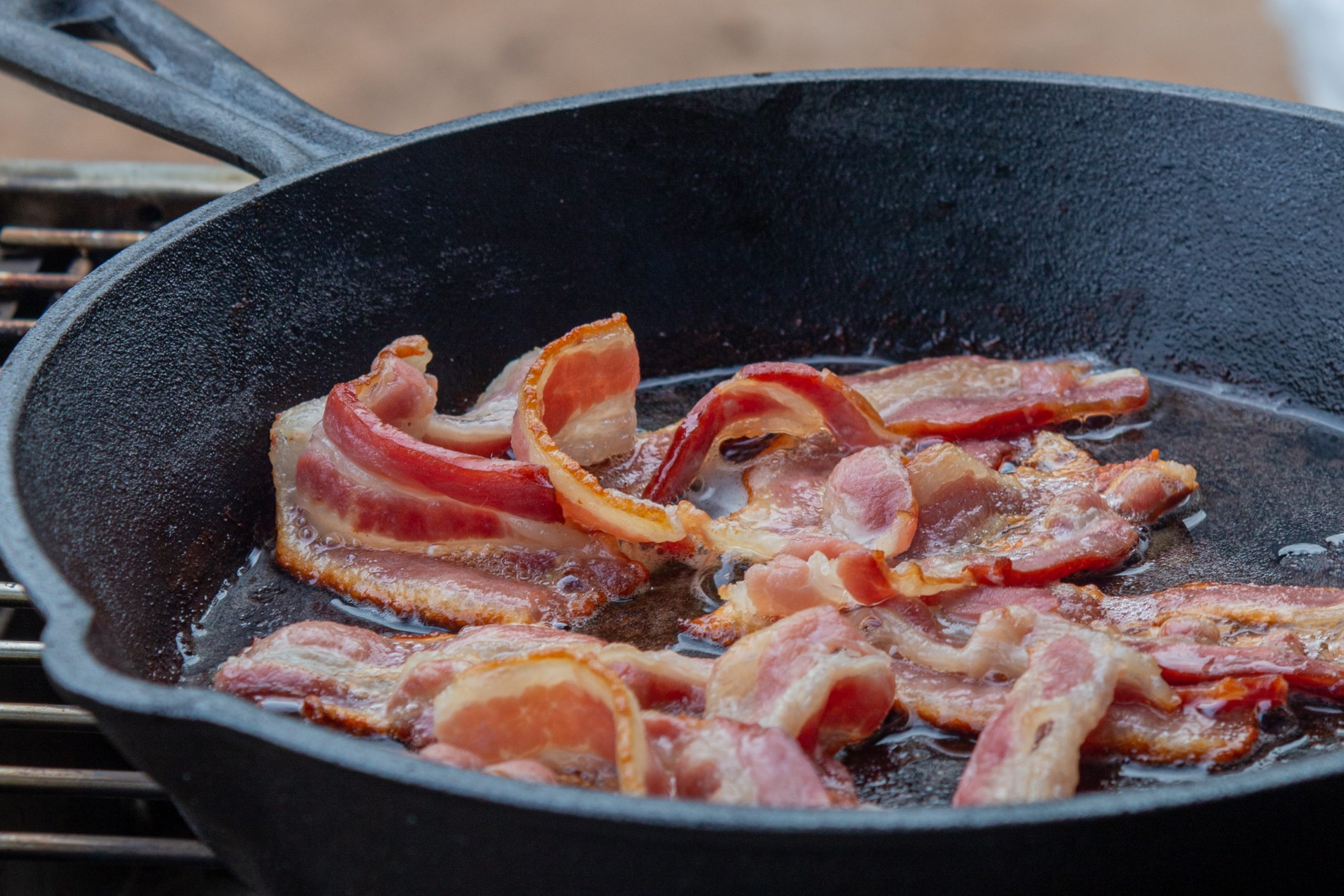Vaccines and Bacon

Photo by Michelle @New Layer Photography on Unsplash
This morning I visited my local farmers’ market, a favorite activity of mine. Here in California’s Central Valley we have access to a world-class assortment of the best fresh local produce. Today a new vendor had a booth. She was selling a variety of bacon. Naturally I was interested. I smiled and asked her to tell me about her wares.
“Our pigs roam free in the foothills,” she said. “They eat acorns in the forest.”
That sounded good to me. I’ve heard the finest European hams are made from acorn-fed pigs.
The vendor continued. “And mushrooms and other wild foods. Then we feed them organic feed.”
I expected that from an artisanal producer in California.
“No antibiotics, hormones, or vaccines.”
Wait…whaaaat?
Vaxxiphobia
Is this the next wave of anti-science thinking? Not only do we refuse life-saving vaccines for ourselves, but we will refuse to consume meat from an animal that has been protected against infectious diseases?
I know the “organic” food business is rife with weird pseudoscientific mumbo-jumbo. Code words like “natural” (hey, snake venom’s 100% natural!) and “no chemicals” (what, I’m eating a vacuum??) sell products. Personally, while I see through a lot of that nonsense I do find that the (often costlier) methods of organic production often yield better quality food.
For organic meats and dairy products, certain husbandry practices have become part of what’s expected for the organic label. Let’s talk about the features this vendor was touting.
No Antibiotics
I fully support the organic practice of antibiotic-free farming. Why?
You need to understand that when people talk about using antibiotics in agriculture, they are not talking about medical care. If piggy has an infection, treating the animal with prescription antibiotics is both ethical and practical—and not what is excluded by “no antibiotics”.
Agriculture has a more widespread, problematic practice with antibiotics: using them as a food supplement. For reasons that are not entirely clear to me, adding antibiotics to livestock food and water causes animals to gain more weight more quickly. The economic benefit to meat producers greatly outweighs the cost of the drugs. According to the University of Minnesota Center for Infectious Disease Research and Policy (source), in 2019 US farmers bought more than 6.1 million kilograms (over 13 million pounds) of medically important antibiotics, of which about 95% were used as food additives.
Organic food consumers view this as a problem because traces of the antibiotics can end up in the meat that we eat. While nobody wants that, there’s an even bigger problem. The widespread, indiscriminate use of antibiotics in feed drives the evolution of antibiotic-resistant bacteria in the guts of livestock. Once those genes exist in those bacteria, they can be transferred to bacteria that infect people. Ultimately, our ability to treat people who are suffering from bacterial infections is being undermined by the use of antibiotics for meat production. Antibiotic resistant bacteria are a big—and growing—medical problem.
By the way, poultry farming used to be the biggest offender but consumer demand for antibiotic-free chicken has driven the industry to change. There has been a 62% reduction in chicken antibiotic sales since 2016. The beef and pork industries are now the majority, although antibiotic sales for these have also declined.
No Hormones
When I hear “no hormones” I assume they’re talking about growth hormones–specifically, rbST or recombinant bovine somatotropin. I think the worries about this are not science-based.
Bovine somatotropin or bovine growth hormone is a natural protein produced by the pituitary gland of cows. (Human pituitary glands produce a human version.) Injections of bST into lactating cows increases milk production. While this phenomenon was known for decades, it wasn’t practical on a commercial scale until recombinant DNA technology allowed us to manufacture bST in a factory. This recombinant technology is the same used to manufacture human insulin for diabetics. Use of rbST has been carefully studied and approved by the FDA (source). There is no difference between the milk produced by rbST-treated cows and untreated cows. There is no hormone in the milk, and even if there were, it would be destroyed in your stomach.
Nevertheless, many people are afraid of rbST or refuse to buy milk from rbST cows. Personally, I don’t care one way or the other.
No vaccines?
This was new—and disturbing—when I heard it today. I truly hope this doesn’t become another common buzzword associated with organic meats. Why? I think it’s an irrational fear similar to the fear of rbST but much worse because demonizing vaccines can only worsen our national crisis of anti-vaxx belief.
Swine vaccines are widely used on US pig farms to protect the animals from deadly viruses like parvovirus (if you have a dog, you know this one), or to protect piglets from E. coli diarrhea. (USDA data) Vaccines keep pigs healthy, and healthy pigs means healthy meat.
I’ll concede that a well-run organic farm might not need to vaccinate its herd. And that’s a wonderful thing. Vaccination is most needed when a farm has a very large herd housed in crowded conditions. This is not ideal for animal welfare, and I’m all for methods to decrease crowding or other management practices that reduce the risk of an infectious disease outbreak among the animals. But when I hear a meat producer advertise “no vaccines” I can’t help but hear an unspoken indictment that veterinary vaccines are themselves bad rather than a simple statement about conditions on the farm.
And the last thing we need is more negative associations with vaccines.
Amy Rogers, MD, PhD, is a Harvard-educated scientist, novelist, journalist, and educator. Learn more about Amy’s science thriller novels, or download a free ebook on the scientific backstory of SARS-CoV-2 and emerging infections, at AmyRogers.com.


